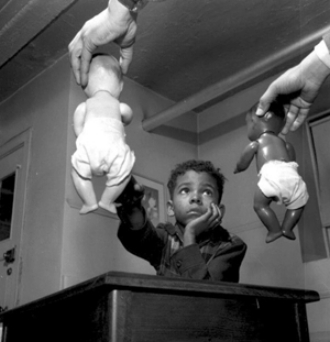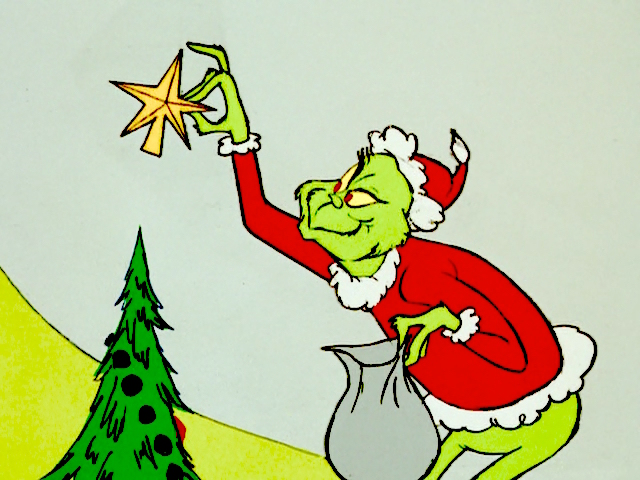When my son was 2 and a half years old and I was buckling him into his car seat, he exclaimed to me, “Papa, I don’t want to be Muslim anymore”. Stunned, I tried to ask him somewhat casually, “Why?”. “Because Paw Patrol only celebrates Christmas and not Eid.” he said, rather matter of fact.

Although as a psychologist I am aware that the way we think about our world (and more importantly ourselves), starts very early in life and that our environment has a lot to do with it, experiencing it with my son first hand, took the wind out of me. Two. And. A. Half. Years. Old. And he already doubted himself because he didn’t see himself reflected in the world around him. He didn’t see himself reflected in what he felt was the norm or the standard for his world.
But he is not the only one. It’s not an uncommon fact that both children andadults from cultural groups that do not celebrate Christmas feel an incredible sense of isolation, or a pressure to conform during the holiday season. As much as there is a pressure for those who do celebrate Christmas to conform to a Martha-Stewart-Ideal of what Christmas is supposed to be, this is an even more isolating pressure for people in our society whose values, culture, or religion don’t align themselves to celebrating Christmas, to conform. (Insert Adam Sandler’s – Hanukkah Song- here.)
But it is not just about Christmas. Our society tends to perpetuate a standard in media, in policy and practice of organizations, that critics often call the “white norm”. In fact, researchers in the field of psychology have noted that the “white norm” is a reality and has negative psychological consequences to people of colour, or people from cultural or religious groups that do not conform to the “white norm”.
We live in a world that is incredibly diverse, but our practices don’t reflect that diversity. The cost to this is that we muffle out the sounds and ideas that come from different experiences and cultures. And when we muffle those, we muffle opportunities for growth, both economic and social.
Psychologists who have studied the impact of institutional microaggressions on these non-white groups find that children from these groups tend to see themselves as less worthwhile, less kind, less intelligent, and less attractive. These consequences continue into adulthood, as does the continued pressure to conform to a set of practices to fit a predominantly white and or Christian perspective.

When I tell the story about my son, there are usually two kinds of responses. And these responses are sentiments that tend to be reflected in society as a whole with regards to the issue of Christmas. First, there’s the response that we should allow him, and other children from different cultural and religious groups, to celebrate Christmas because it’s a secular holiday. And second, a defensiveness about Christmas, that it’s more about “The Holidays”. That many types of people celebrate at least something special this time of year, so calling it “The Holidays” is a way to be more inclusive. Let’s address both of these separately.
“Allowing” the Celebration of Christmas
First and foremost, most people who don’t celebrate Christmas are not vehemently against it. My son has reindeer pyjamas, and I personally am partial to any sweet food that has candy cane flavouring. But we don’t have a Christmas tree, don’t give gifts, and don’t get together for the purpose of a Christmas dinner over that time of the year. To celebrate something because of the pressure to fit in, promotes a colonialist perspective that doesn’t allow people from different perspectives to have a sense of integrity in their own beliefs and cultural traditions. Suggesting otherwise can feel a little like preaching that a set of values from one group are more important or have greater value than another group. Furthermore the pressure to fit in, even if it is “just for the kids” relays a message that the dominant culture is more important than the one people grew up with. Not good for the human psyche.
Softening Christmas into “The Holidays”
The idea of generalizing Christmas into “The Holidays” makes very good sense, but only for those people who are not religious but want to celebrate the secular holiday of Christmas. It does not, however, incorporate other holidays. So even though “The Holidays” are meant to incorporate Jewish traditions, or that of Kwanza, in truth marketing, iconography, and everything surrounding “The Holidays” remains largely focused around old Christmas or Christian traditions. Same content, different packaging. If we really wanted to be inclusive, we might incorporate holidays and observances more important to different people at different times of the year, including Rosh Hashanah, Chinese New Year, Diwali, both Eids and more. None of those tend to fall around “The Holiday Season”.
The other primary problem with softening Christmas, is that it takes away from the culture of Christmas, for those who do hold it dear. It achieves two unfortunate outcomes. It removes a rich tradition of celebration for those who do celebrate Christmas (and frankly I couldn’t live without candy cane flavoured food items). And it makes those who don’t celebrate Christmas feel like they don’t fit in or belong. In working toward cultural inclusivity, we cannot erase one culture to accommodate another. There is enough room in our collective minds, hearts, and organizations, to accommodate and celebrate all of us, instead of just one group of us.

Enough of the Sad Story. What Does This Have To Do With My Organization?
This is not just about Christmas. It’s about unconscious bias in policies and practices that we engage in without much consideration into how it impacts others. Our organizations may miss being mindful about the diverse world they live in, and the diverse group of people that make up their organization, promoting more of what they feel is the predominant “Western” world view instead of a larger set of world views. The question we need to ask ourselves is this: Do the diverse group of people in our organization or society see themselves reflected in the organization or society they belong to?
The truth is that ethnic and cultural minorities do not see themselves reflected in the organizations they belong to. This true for larger society. Paw Patrol only acknowledges a certain culture, assuming that all child viewers must celebrate Christmas. The overwhelming majority of super heroes are white. The majority of fashion models are white. Many Oscar Winners are white actors. And the practices of our organizations in North American and European countries generally tend to reflect only one ethnic or cultural group, despite the society being very diverse.
When people do not see themselves reflected in their organization, not only do they feel poorly about themselves, they feel less connected to the group. If they are less connected with their organization, there is a very good chance their loyalty and commitment to that organization will waver as well.
Recent research confirms that in order for countries to be economically successful, the diverse groups present in that society must feel included and not segregated. This applies to organizations as well. This means we need to ensure that we are actively working toward ways we can be more inclusive in policies and practices of our organizations.
I often compare the concept of diversity and inclusion to a relationship. Imagine you were engaged in a relationship with someone who although paid lip service to the idea that they had great value and respect for you and your ideas, but only referenced their own ideas. Persistently. How long do you think you’d remain in that relationship with that person? And if you did remain in that relationship, what do you think your self-esteem would end up like? How functional would that relationship be in terms of reflecting both your ideals?
The Answer
The answer here is that Christmas itself is not killing cultural diversity. But it is the sole celebration of only Christmas, and nothing else of other cultures that make up our society and the organizations we are in, that is killing cultural diversity.
The solution to this dilemma is to be mindful our own biases, and not assume that the worldview we have, is the same worldview of others. Or even that the worldview we have, is the one that others desire. In diverse societies and organizations, we benefit greatly from the diversity in thought and perspective. But that also means our beliefs may not be the same on every subject. The things we hold valuable and celebrate won’t always be the same things others hold valuable and celebrate. If we inadvertently push those values, beliefs, and celebrations on others, without allowing space to acknowledge their beliefs and celebrations in the same enthusiastic fashion, then we isolate those people and the thoughts and beliefs they offer our society and our organizations that could otherwise cause us growth.
The impact of this on society, on schools, on health care systems, and in business and corporate settings are endless. Not only does this have an impact on the culture of inclusivity, but as research would suggest, the impact is economic as well.
Are the holidays acknowledged and celebrated in your organization reflective of those celebrated by the people in your organization? To the same level that Christmas is? Are people given the same benefits for time off on their holidays as people would for Christmas? Are those holidays acknowledged in a way that does not appear token or patronizing? And the most important question, that I noted earlier as well; do people from different cultural and ethnic groups see themselves reflected in the values and practices of the organization they are a part of? Because if they do, there is a high degree of probability that the organization will run better, if for no other reason than that the people who run it can relate to the organization, and feel accepted and valued by it.





